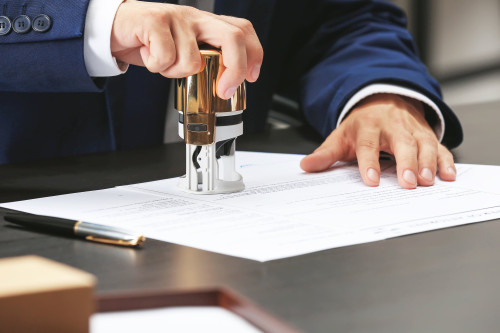25th Sep 2023
Does a Will Have to Be Notarized to Be Binding?
Over 1.25 billion documents are notarized every year. That's 40 every second.
The service of these professionals ensures these documents are legal and not signed under duress. The demand for them is clear, but when you need them isn't always as easy to determine.
Does a will have to be notarized to be binding? Read on to learn everything that makes this essential document legal.
What are the Different Types of Wills?
The major difference between the major types of wills isn't what makes them legal but what they cover.
A simple will covers who gets what assets and designates a guardian for underage children. A nuncupative trust, also known as a last will and testament, is given verbally but not in writing and typically requires at least three witnesses.A living will covers end-of-life medical care.
Mirror wills give all of your assets to your spouse. Joint wills are similar but can't be changed.
A testamentary trust puts conditions on who gets your assets and when. A pour-over will pours all assets into a living trust.
A holographic will is written out and signed instead of typed and signed. A deathbed will is similar but can be handwritten or signed.
Does a Will Have to Be Notarized?
Having a document notarized means that a licensed notary witnessed the signing of a document. They establish the authenticity of the signatures and then provide their signature and a seal.
Your will doesn't have to be notarized except in Louisiana. A legally valid will must be signed by you when you're of sound mind and not under any pressure. There must also be two witnesses who sign.
A notary can help you create a self-proving affidavit unless you live in Ohio or Washington, D.C. It's a document signed by your witnesses where they confirm your identity and that you signed the will under legal circumstances. The notary signs and seals it, making the will self-confirming.
The benefit of this extra step is that it keeps your will out of probate court. You won't waste any time trying to prove its validity.
How Can You Make Your Own Will?
Start your estate planning journey by getting the proper documents in order. You can do this through an online service or an estate planning attorney. Then it's time for the difficult task of making end-of-life decisions.
Choose a Guardian For Your Children
The purpose of a will is to protect your family after your death. This becomes even more important if you have children under the age of 18.
Choose who you want to take legal custody of them and their property. Talk it over with them before you put them in the will and ask again every year or so. You should also name an alternate guardian in case your first choice falls through.
Failing to include a name leaves the decision up to the court. This could leave them in the foster system.
Choose an Executor and Witnesses
The executor is also known as the personal representative. They have a range of duties, including:
- Carrying out the directions in your will
- Handling probate
- Making sure beneficiaries get what they're entitled to
This is another role that you should think carefully about. Choose a responsible, unbiased individual with nothing to gain from the assets in your will.
The same goes for witnesses. They should have no personal agendas or biases.
Take Stock of Your Property and Charity Work
Put a list of your property in your will. There are two types, personal and real.
Personal property is anything that you own, from savings accounts to vehicles. Real property is any investment in land or real estate.
Be as specific as possible. Say the exact address of any homes, and include a copy of the titles of any vehicles.
The more details you provide, the better. It lessens the chance of any confusion about your final wishes.
List Your Debt
73% of Americans die with debt. The average amount is $62,000.
These debts may include:
- Unpaid taxes
- Credit cards
- Student loans
- Mortgages
They won't pass to your surviving family if your estate covers them. The only exceptions are if you shared it or they cosigned a loan with you. There are also community property states that require sharing marital debts and states that require repayment of health-related debt.
Choose Your Beneficiaries
Everyone who gets any of your assets is known as a beneficiary. YOu can give as much or as little as you want to whoever you want.
A beneficiary is not the same as an heir. An heir is entitled to inherit part of an estate, such as a spouse or family member. A beneficiary is an individual entitled to receive assets based on the will. Beneficiaries can override heirs.
You can also name a charity as a beneficiary. Include their employer identification number or EIN to identify them as nonprofits.
You may also want to name a residuary beneficiary. They get what's left of your estate after everything gets distributed.
The court distributes your estate as they see fit if you don't designate beneficiaries.
Sign the Document
This final step is perhaps the most important. Your will won't be legal without it.
Get your witnesses to sign it as well. Call a notary if you want it notarized or to get a self-proving will.
Supplies and Storage
Make sure to get all of the necessary legal supplies for storing a will. These include:
- Envelopes and envelope covers
- Declaration of trust papers
- Living will covers
- Continuation papers
- Exhibit tabs
These supplies help your documents stand out. Keep it in a place where it won't get lost or mixed up with other estate planning documents. It also makes it easier to update it.
Where Should You Get the Right Will Supplies?
Does a will have to be notarized? Unless you live in Louisiana, the answer is no. That means you can start making this essential document yourself with the right tools.
Browse our will supplies at Exhibit Indexes to get started today.




